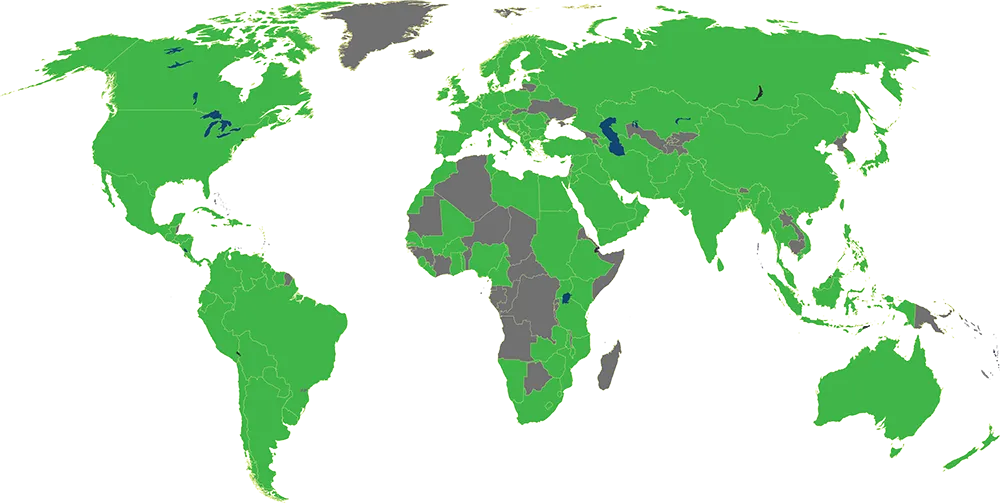Released in Morocco during COP22 negotiations, the document has generated enthusiasm in the sector and gained the support of partner organisations beside the endorsement from IRF Geneva membership around the world
Under the leadership of the Moroccan Government, adaptation and action on adaptation has gained centre stage at COP22 hosted in Marrakech from 8 to 18 November 2016. As climate change and the threats its poses become increasingly apparent, it is also becoming clear that the transport sector is
January 30, 2017
Read time: 3 mins
Released in Morocco during COP22 negotiations, the document has generated enthusiasm in the sector and gained the support of partner organisations beside the endorsement from IRF Geneva membership around the world
Under the leadership of the Moroccan Government, adaptation and action on adaptation has gained centre stage at COP22 hosted in Marrakech from 8 to 18 November 2016. As climate change and the threats its poses become increasingly apparent, it is also becoming clear that the transport sector is likely to be heavily affected by the negative impacts of climate change and that measures to protect transport infrastructure and services have to be put in place. Much of this action involves adapting existing transport infrastructure to the threats posed by climate change, and building resilient new infrastructure.
“Adaptation in transport should not be viewed in isolation, nor reduced to just technical infrastructure fixes. On the contrary, adaptation should be seen as part of a wider strategic approach, reflecting the interrelationships between transport (infrastructure and network operations), the local/regional economy and land use” said Susanna Zammataro, IRF Geneva Executive Director, presenting the IRF Manifesto at the Transport Day organised in Marrakech.
The IRF Manifesto states that “Given the uncertainties inherent in climate change and its impacts, it is necessary to plan, make policy and take action based on complete, relevant, accurate, and up-to-date data." This is a shared concerned in the international community and in the sector in particular and the Manifesto calls strongly on the necessity to set data collection and management at the top of the priorities list when discussing action on adaptation.
“We are encouraged by the strong support that the document has received from all over the world and from other leading road transport organisations. It is a clear sign that there’s convergence on the identified priorities especially when it comes to data, access to climate finance schemes, prioritisation of spending and creation of the conditions that will encourage the private sector to invest and deliver” added Mrs Zammataro.
“We are delighted to work with the members of our Federation and with other key partners to further the transport agenda and to make sure that transport becomes an integral part of the climate negotiations and action. Sustainable mobility is a fundamental part of the quality of life of people and the backbone of the economy of any country in the world. Providing sustainable transport infrastructure and services is key to realise the Sustainable Development Goals (SDGs)."
The Manifesto is available on1201 IRF Geneva website.
Under the leadership of the Moroccan Government, adaptation and action on adaptation has gained centre stage at COP22 hosted in Marrakech from 8 to 18 November 2016. As climate change and the threats its poses become increasingly apparent, it is also becoming clear that the transport sector is likely to be heavily affected by the negative impacts of climate change and that measures to protect transport infrastructure and services have to be put in place. Much of this action involves adapting existing transport infrastructure to the threats posed by climate change, and building resilient new infrastructure.
“Adaptation in transport should not be viewed in isolation, nor reduced to just technical infrastructure fixes. On the contrary, adaptation should be seen as part of a wider strategic approach, reflecting the interrelationships between transport (infrastructure and network operations), the local/regional economy and land use” said Susanna Zammataro, IRF Geneva Executive Director, presenting the IRF Manifesto at the Transport Day organised in Marrakech.
The IRF Manifesto states that “Given the uncertainties inherent in climate change and its impacts, it is necessary to plan, make policy and take action based on complete, relevant, accurate, and up-to-date data." This is a shared concerned in the international community and in the sector in particular and the Manifesto calls strongly on the necessity to set data collection and management at the top of the priorities list when discussing action on adaptation.
“We are encouraged by the strong support that the document has received from all over the world and from other leading road transport organisations. It is a clear sign that there’s convergence on the identified priorities especially when it comes to data, access to climate finance schemes, prioritisation of spending and creation of the conditions that will encourage the private sector to invest and deliver” added Mrs Zammataro.
“We are delighted to work with the members of our Federation and with other key partners to further the transport agenda and to make sure that transport becomes an integral part of the climate negotiations and action. Sustainable mobility is a fundamental part of the quality of life of people and the backbone of the economy of any country in the world. Providing sustainable transport infrastructure and services is key to realise the Sustainable Development Goals (SDGs)."
The Manifesto is available on








